Is Ireland’s horticulture industry aware of the threat Xylella fastidiosa poses?
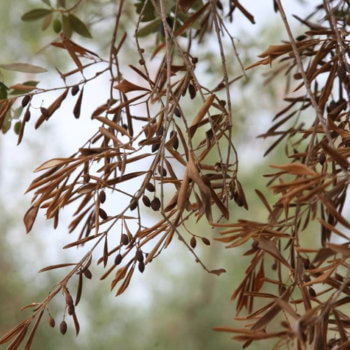
We spoke to the IHNSA, Kildare Growers, and the ALCI to see how prepared they are for dealing with the threat of Xylella Fastidiosa.
29 November 2017
Xylella fastidiosa is one of the most harmful bacterial plant diseases in the world. It can cause severe losses in a wide range of hosts and there would be a massive impact on the plant trade across all business sectors in the event of an outbreak.
An outbreak of this disease, where several different plants are infected, will trigger immediate stock destruction within 100 metres and a movement ban of host plants within a 10-kilometre radius for up to five years.
This will dramatically and immediately affect most plant selling operations, as well as impacting on all businesses dealing in plants within the 10km zone. Essentially, the impact of this disease could be the end for some businesses.
Irish Hardy Nursery Stock Association
Here in Ireland we have a very hard-working Irish Hardy Nursery Stock Association (IHNSA), who together with the Department of Agriculture, Fisheries, and the Marine has engaged in joint discussions and meetings as recent as last week.
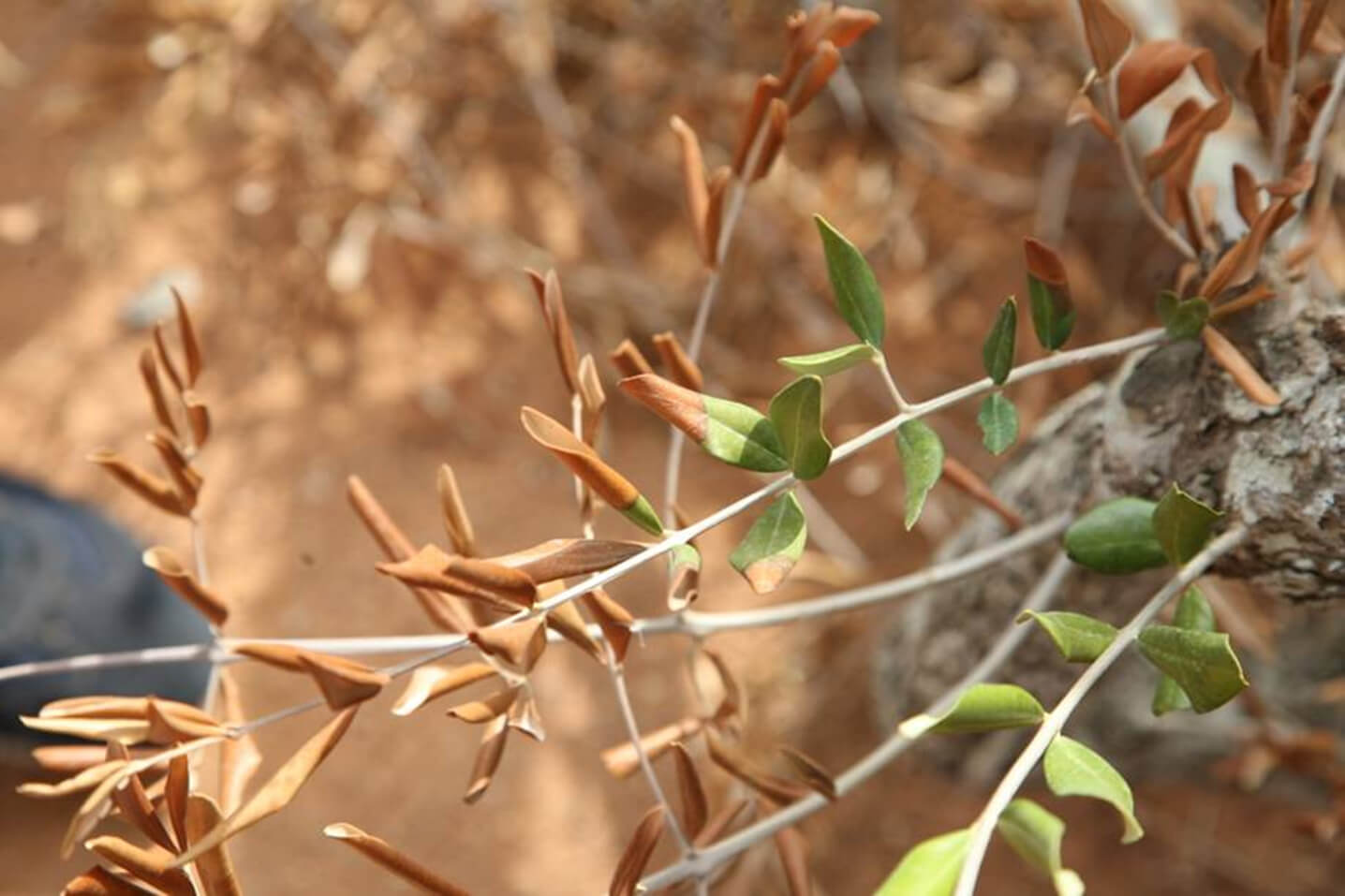
A plant devastated by Xylella fastidiosa. Photo: European and Mediterranean Plant Protection Organisation.
It is encouraging to know that IHNSA members are up-to-date with the latest information on Xylella fastidiosa and how to prevent it, but it is vital that the industry as a whole is aware of the challenges and precautions surrounding the importing of plants, in particularly from Italy.
Speaking with Growtrade.ie, Val Farrell, chairman of the IHNSA said that: “Our nursery stock members were well aware of the dangers that Xylella fastidiosa poses.”
Farrell continued: “Xylella Fastidiosa was the main topic on our agenda and nursery stockists are well aware of it and are putting in place precautions to deal with it.
“It would be a problem for retail outlets who may not be aware of it. I wouldn’t say they are actively aware of the dangers that are involved with this disease should it come into the country.”
L&K Dunne Nurseries
Growtrade.ie spoke with Kieran Dunne of L&K Dunne Nurseries and Kildare Growers Group to see how his business is preventing an outbreak of Xylella fastidiosa, what impact a potential outbreak could have on his business and whether he believes we are well enough aware of the threat in Ireland.
How do you prevent Xylella fastidiosa, and similar bacterial diseases, from entering your stock, and do you have any precautions or practices in place to prevent such a thing happening?
“The difficulty with this disease is the apparent wide host range. Hundreds of commonly used landscape species are supposedly at risk of infection, and as such hundreds of routes of infection exist. Right now the disease appears to be isolated to Italy and a few isolated cases in Europe.
“To prevent the disease entering our stock, the only logical course of action is to take care when importing stock from these locations. Twelve species in particularly are at a high risk and we have made the decision not to import these from the affected regions at all.
Olives are obviously a very high risk plant and to ensure a clean nursery, we will not be importing olives until this situation is resolved. In addition, trust with our suppliers is paramount. We need to know they have clean stock and are actively screening their stock for signs of infection. They must be certified by the Italian department of agriculture for having clean stock.”
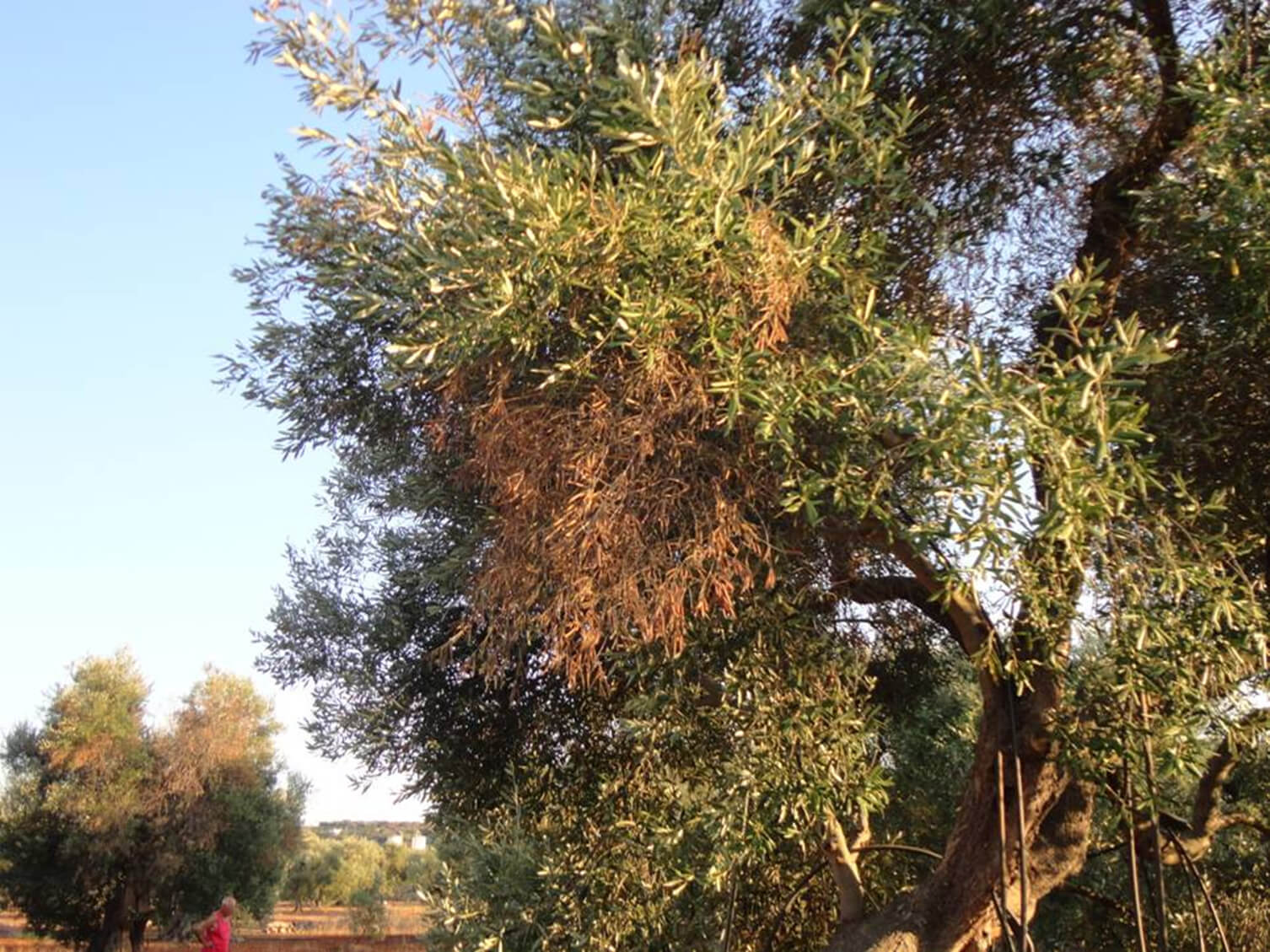
Photo: European and Mediterranean Plant Protection Organisation.
How damaging could Xylella fastidiosa be to your business?
“A confirmed Xylella infection could severely damage an amenity enterprises ability to do business. EU legislation calls for extreme measures if this disease is confirmed within a country.
“In short, your business may not be allowed to sell a large number of plant species for several years. Bacterial pathogens do not know jurisdictional boundaries or differentiate between a grower, a wholesaler, or a retailer. If this disease is found on a nursery, a garden centre, a florist, or with a landscaper, the possibility of continuing in business is extremely difficult.
“All personnel handling plants and in particularly those importing stock into the country must ask themselves if what they are importing is clean and can they afford to take the risk if they are not sure.
“The nursery industry is in general very informed about potential pathogens which could harm their stock and our growers have been trained to identify suspect plant health issues.”
Do you think we are informed well enough, in the horticulture industry in Ireland, about the danger posed by Xylella fastidiosa?
Considering what is at stake for the industry, solid, concrete information is thin on the ground. There has been a noticeable increase in information disseminated by the Department of Agriculture and various trade organisations over recent months, however anecdotal conversations with people within the trade shows a significant lack of awareness of this disease.
Those within the trade should be aware of importing certain types of plants, particularly specimens such as olives. The department will be increasing phytosanitary checks and this is a measure which we welcome.”
Association of Landscape Contractors of Ireland
However while it appears that nursery growers are aware of Xylella fastidiosa and its implications, there appears to be a lack of communication between different horticultural industries, in particular, the landscape industry which has said that they haven’t received any information from the government.
Speaking to Growtrade.ie, Ross Carew, Executive Secretary of the Association of Landscape Contractors of Ireland (ALCI) said: “I have heard one reference to it and that is as much as I have heard, so I am not in a position to inform our members with accurate information on it.”
Carew went onto say that they haven’t received any information from the government whatsoever and indeed from any other source. “It does beg the question why they aren’t informing other relative organisations like ourselves.”
Carew said information regarding Xylella fastidiosa has been: “Very limited in our case, at least speaking on behalf of the office of the ALCI, maybe some of individual members are more informed but as someone who runs the organisation, no information has passed into our office.
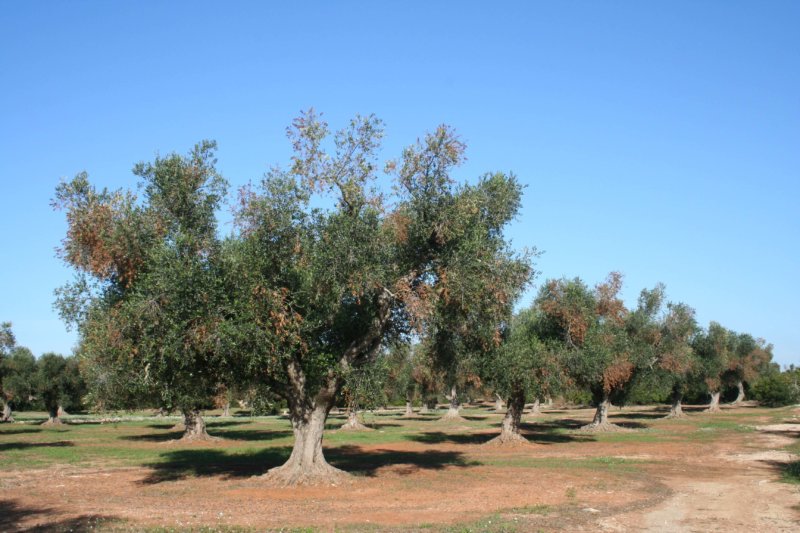
Trees infected with Xylella Fastidiosa. Photo: European and Mediterranean Plant Protection Organisation.
“None of the nursery stock associations – we have several of the biggest nursery growers in the country as trade members of ours – and none of them have informed my office of the issue.
“I need information, accurate information in order to keep our members informed in situations like this, but we need to be informed ourselves.”
It is obvious that there are some factions in the horticulture profession in Ireland that are aware of the potential impact of Xylella fastidiosa and there are some who are unaware – through a lack of communication between the Department of Agriculture, Fisheries, and the Marine and between the industry itself.
Xylella fastidiosa will hopefully never be an issue for Irish growers, landscapers, nurseries and all involved in Irish horticulture; however to ensure that it never is, there has to be an open channel of communication which incorporates all stakeholders in Irish horticulture.
For those unaware of Xylella Fastidiosa and the dangers it pose then read Growtrade’s summary of what it is and how to prevent it.



 Print
Print
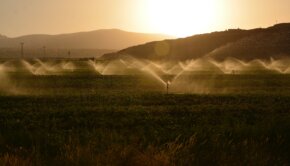




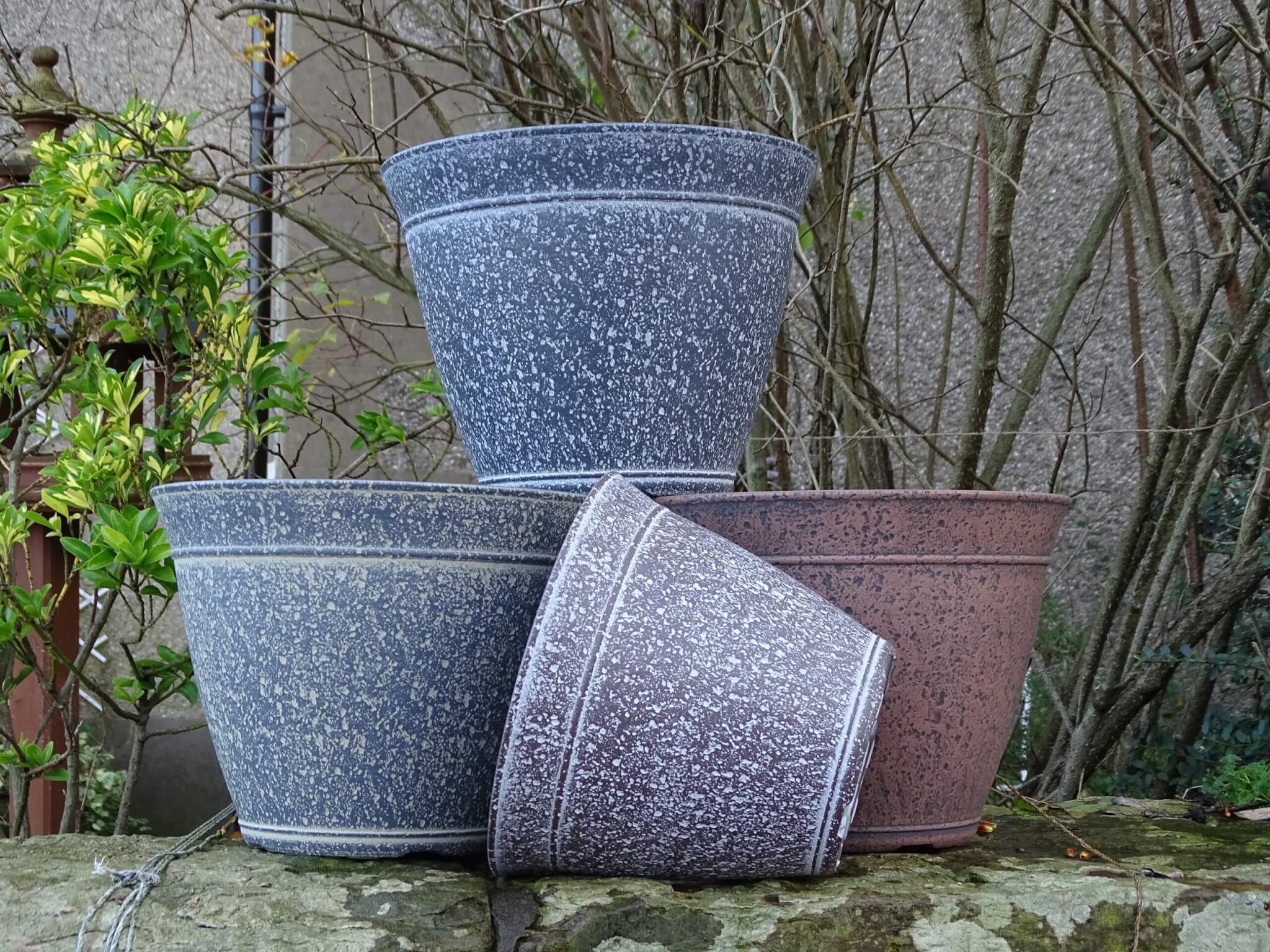


One Response to Is Ireland’s horticulture industry aware of the threat Xylella fastidiosa poses?